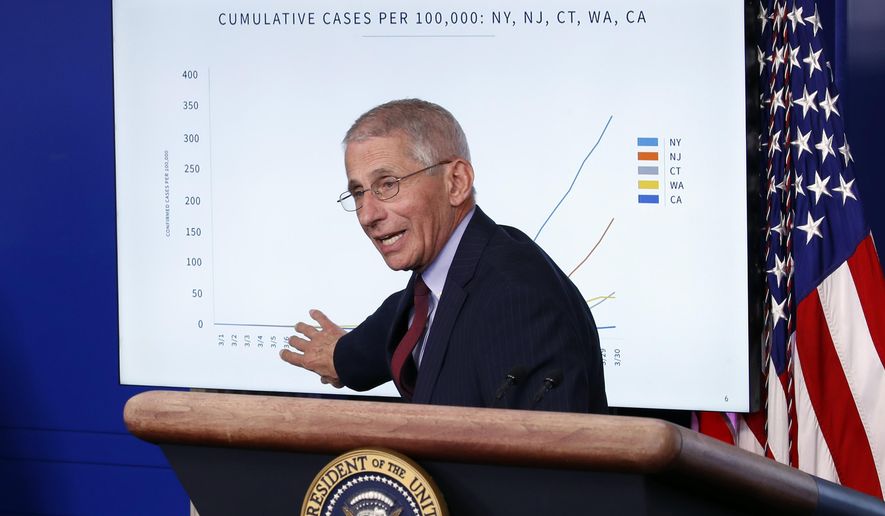A Republican duo filed legislation Thursday to break up a part of the National Institutes of Health into three entities with Senate-confirmed leaders, pointing to Dr. Anthony Fauci’s outsized influence during the COVID-19 pandemic as a catalyst for the proposal.
Sen. Rand Paul, Kentucky Republican, and Rep. Chip Roy, Texas Republican, said their NIH Reform Act is modeled on steps Congress took to impose limits on the FBI director’s term after J. Edgar Hoover’s 37-year tenure.
They said Dr. Fauci served an even longer time as director of the National Institute of Allergy and Infectious Diseases and enjoyed a broad portfolio before retiring a few months ago, yet the Senate “never voted to confirm him once.”
“No one person should have unilateral authority to make decisions for millions of Americans,” said Mr. Paul, a vocal critic of COVID-19 mandates and societal restrictions. “To ensure that ineffective, unscientific lockdowns and mandates are never foisted on the American people ever again, I’ve introduced this bill to eliminate Dr. Anthony Fauci’s previous position as director of the National Institute of Allergy and Infectious Diseases and divide the role into three separate new institutes.”
Under the bill, NIAID would be abolished and separated into the National Institute of Allergic Diseases, the National Institute of Infectious Diseases and the National Institute of Immunologic Diseases.
The directors of each institute would be appointed by the president and confirmed by the Senate. The directors could serve no more than two five-year terms.
Sponsors of the bill pointed to past reorganizations at the NIH and Congress’ decision in 1976 to limit FBI directors to a single 10-year term following Hoover’s death in 1972.
Mr. Roy said similar actions are needed after Dr. Fauci’s long career.
The familiar doctor won plaudits from the science community for his work on HIV/AIDS and other health threats, but by 2020 he became the face of onerous COVID-19 restrictions and a villain among the political right.
“Never again should a single individual, like Dr. Anthony Fauci, wield unchecked power and influence over the lives of the American people,” Mr. Roy said. “Breaking up Dr. Fauci’s taxpayer-funded bully pulpit into three separate agencies — and requiring Senate confirmation for all their future directors — is one of many actions necessary to allow the American people to hold public health agencies accountable.”
The Washington Times has reached out to the NIAID for comment on the legislation.
The NIH is made up of 27 institutes and centers. Under current rules, the secretary of the Department of Health and Human Services appoints directors for each institute.
Each of the directors serves a five-year term — though can be reappointed with no limits on terms — and reports directly to the director of NIH, which is a position appointed by the president and confirmed by the Senate.
The president also appoints the director of the National Cancer Institute, though the Senate does not confirm this position.
For more information, visit The Washington Times COVID-19 resource page.
• Tom Howell Jr. can be reached at thowell@washingtontimes.com.




Please read our comment policy before commenting.